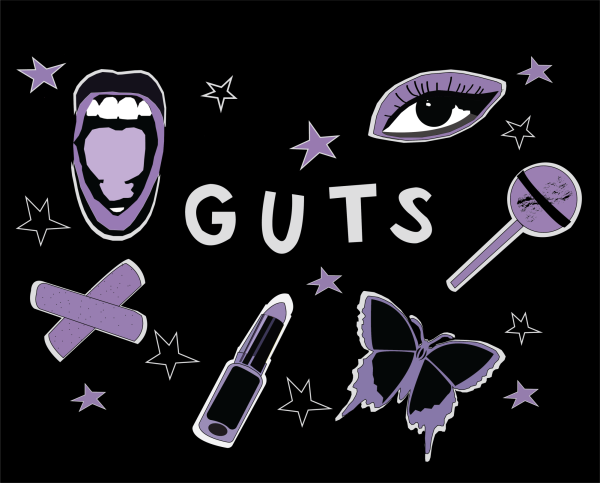All it took was one bad landing from a layup and the sound of two pops to end junior Lauren Mertz’s sophomore basketball season. Athletic trainer Christy Grimes said not only was she able to hear the ligament tear from the sidelines, but knew the diagnosis immediately from the way Mertz landed.
Head girl’s basketball coach Dave Glenn said whenever an athlete suffers from a knee injury it is difficult to diagnose until after the player receives an MRI scan. Glenn said once it was confirmed Mertz had torn her Anterior Cruciate Ligament (ACL), both Mertz and the team reacted well to the circumstances.
Grimes said the ACL controls the tibia from going forward. The ligament is usually torn from a planting mechanism, Grimes said, the body keeps moving forward while the foot stays still.
“Women are more likely to tear their ACL than men,” Grimes said. “The way our hips are designed, we have a wider cue angle so our hips are wider than our knee. That puts a different angle of pull on all the ligaments in our knee.”
Mertz’s mom, Amy Mertz, said she tore her ACL when she was a freshman playing basketball. Amy said she expected one of her daughters suffer a tear. When Mertz landed, Amy said she knew her daughter had torn the ligament immediately.
“At first I was pretty shocked and sad,” Amy said. “She is definitely stronger than I think. I learned she’s not a negative person. She never said, ‘Why me?’ she just went forward … just seeing that inspired me to continue to be positive and encourage her to come back.”
Mertz said tearing her ACL hurt enough to make her scream, although she does not remember the pain very well. Mertz’s surgery took place on New Year’s Eve last year, and the doctors repaired her ACL with her patellar tendon from the same knee.
“I was really scared,” Mertz said. “I didn’t know what to expect. I was really afraid to have surgery because I heard about people who get sick from the medicine, and I was pretty freaked out.”
Mertz said previous to the surgery she participated in physical therapy to have a faster recovery. After surgery, Mertz said she worked with a physical therapist four times a week and upgraded to working out with a trainer four months later.
“The hardest part about my recovery was staying positive because it seemed like I could do nothing,” Mertz said. “I learned not to take playing for granted…[not being able to play] was the worst feeling I could ever imagine.”
Amy said she believes the recovery went great. Mertz was really pushing to play volleyball in the fall, Amy said. The nice thing about the recovery was the physical therapist being a family friend, Amy said, the therapist watched out for Mertz and made sure she was doing everything correctly. Amy said physical therapy was the key to coming back.
Mertz said she returned to full play the third game of the 2012 volleyball season. It was early for her return, Mertz said, so she had to be careful. Mertz said she started crying when she came off the court because she was so happy the hard work she had put in paid off.
“I was very excited when she was cleared to play this fall,” Amy said. “When she first came onto the court she happened to be playing with [Mertz] and I actually had tears in my eyes. It was pretty cool. It was long time coming.”
When the volleyball season ended, Mertz participated in basketball tryouts eager to pick up her season where she had left off. On Nov. 14 Mertz drove into the lane during a scrimmage, attempted to stop and turn, and in doing so tore her other ACL.
“I felt like everything I’d worked for was thrown away,” Mertz said. “It didn’t really hit me until a week and a half after, and it hit me hard.”
Amy said she was in total disbelief when she heard the news. Until the diagnosis was confirmed through an MRI, Amy said she refused to believe the ligament was torn. However, Amy said when they were sure what had happened, Mertz’s positive attitude amazed her.
Grimes said Mertz has handled the second injury well. Mertz is a trouper, Grimes said, she goes through the therapy and does what she is supposed to do to get back. Grimes said she is hopeful to have Mertz back on the court again next season.
“The second time [she fell] I was praying to God it wasn’t her ACL,” Grimes said. “Although it was my first reaction to think she tore her other one from what she told me she did. Mechanism of injury usually tells you what happened.”
Glenn said his initial reaction to the injury was similar to when Mertz tore her first ACL. Glenn said he felt bad for Mertz after how hard she worked to return, only to have the injury reoccur.
“She had worked really hard to get back to 100 percent,” Glenn said. “She was doing better than ever and she was looking like she hadn’t lost a step. Basketball was looking really good so we lose a very good basketball player, we lose a very good leader…”
Amy said she believes the recovery will go better this time around. There was not as much swelling in the knee, Amy said, and the physical therapist said Mertz was able to bend her knee all the way before the operation which she was unable to do the first time. Amy said the family now knows what to expect, which can be a good and bad thing. They know how long the surgery takes, and how to deal with the pain and medicine.
“It’s also bad because she knows it hurts when you pull the drain out,” Amy said. “She knows the hurt part that is going to come. She’s only mentioned it a couple times, but I know it’s on her mind. It’s good and bad.”
Preventing ACL tears comes from hamstring strength, Grimes said. Just going on a run will not allow the body to learn the ability to react to a constant start and stop motion the ACL controls, Grimes said. Stronger hamstrings and quads control the knee more, Grimes said, that way the ligament will not have to work as hard.
Previous to both injuries, Mertz had verbally committed to KSU to play basketball. The injuries have not affected this commitment or her relationship with the college, Mertz said, and the coaching staff at KSU has been great about working with her. Amy said Mertz received a letter from the head coach assuring her the college is 100 percent committed to her. The staff sees injuries as a part of the sport, Amy said, they know girls can come back from the injury and be better and stronger than before.
“She’s handled it well,” Glenn said. “She’s handled each one the right way. She’s handling it as well as someone could handle it and I’m very proud of her for that.”







